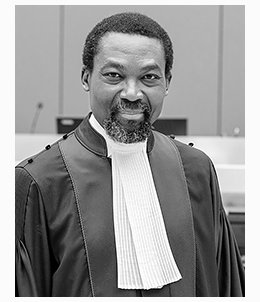 In this episode Tom Dannenbaum, a professor of international law and Co-Director of the International Law and Governance Center at The Fletcher School of Law & Diplomacy at Tufts University, discusses his work on the war crime of intentional starvation of civilians as a method of warfare. We begin with an analysis of the proper interpretation and operation of the prohibition on starvation as a method of warfare in International Humanitarian Law, as provided for in the Additional Protocols to the Geneva Conventions and customary international law, and how this prohibition applies in the context of an encirclement siege, and how it relates to military necessity and the principle of distinction. We then turn to his contribution to the discourse on the best interpretation of the criminal prohibition in the Rome Statute. This involves a discussion of how best to understand the term “method of warfare,” what precisely constitutes the actus res of the crime, what is the nature of the intent that is required, and what the underlying wrong is said to be – and Tom’s claim that the incremental and drawn-out process of starvation and deprivation, far from being a mitigating factor, is precisely what makes the crime distinct, and informs how we should think about the actions that are prohibited. Finally, we turn to discuss the issue of the current siege of Gaza, informed by this theoretical analysis of how the relevant IHL and ICL prohibitions operate.
In this episode Tom Dannenbaum, a professor of international law and Co-Director of the International Law and Governance Center at The Fletcher School of Law & Diplomacy at Tufts University, discusses his work on the war crime of intentional starvation of civilians as a method of warfare. We begin with an analysis of the proper interpretation and operation of the prohibition on starvation as a method of warfare in International Humanitarian Law, as provided for in the Additional Protocols to the Geneva Conventions and customary international law, and how this prohibition applies in the context of an encirclement siege, and how it relates to military necessity and the principle of distinction. We then turn to his contribution to the discourse on the best interpretation of the criminal prohibition in the Rome Statute. This involves a discussion of how best to understand the term “method of warfare,” what precisely constitutes the actus res of the crime, what is the nature of the intent that is required, and what the underlying wrong is said to be – and Tom’s claim that the incremental and drawn-out process of starvation and deprivation, far from being a mitigating factor, is precisely what makes the crime distinct, and informs how we should think about the actions that are prohibited. Finally, we turn to discuss the issue of the current siege of Gaza, informed by this theoretical analysis of how the relevant IHL and ICL prohibitions operate.
Materials:
– “Siege Starvation: A War Crime of Societal Torture,” 22 Chicago Journal of International Law (2022).
– “Criminalizing Starvation in an Age of Mass Deprivation in War: Intent, Method, Form, and Consequence,” 55 Vanderbilt Journal of International Law 681 (2022).
– “The Siege of Gaza and the Starvation War Crime,” Just Security, Oct. 11, 2023.
Reading Recommendations:
– Naz Modirzadeh, “Cut These Words: Passion and International Law of War Scholarship,” 61 Harvard International Law Journal 1 (2020).
– Bridget Conley, Alex de Waal, Catriona Murcdoch, and Wayne Jordash, eds., Accountability for Mass Starvation: Testing the Limits of the Law (2022).
– Carsten Stahn, Justice as Message (2020).
 A conversation with
A conversation with  In this episode I speak with Samuel Moyn, who is a Professor of Jurisprudence at Yale Law School and Professor of History at Yale University. Sam has written a number of books on issues at the intersection of history and international human rights, but we here discuss his most recent book, Humane: How the United States Abandoned Peace and Reinvented War. Taking off from an insight of Leo Tolstoy’s, the book provocatively explores how an increasing focus on the humanization of war may have made us more accepting of armed conflict, and thereby undermined the movement to constrain the resort to war. In our discussion we explore some of the historical accounts that form the premises of this argument, including the claim that IHL did little to make war more humane until after the Vietnam war, particularly in the history of Western conflicts with non-white peoples; how armed conflict become far more humanized in the so-called “global war on terror;” and how this increasing focus on humanizing war has resulted in a corresponding decline in efforts to constrain the resort to war. We dig into the nature and implications of this claimed inverse relationship, and what forces and actors he thinks help to explain the phenomenon, and end with the question of what might might be done, and by whom, to address the problem of this declining focus on preventing war – an urgent question in the circumstances.
In this episode I speak with Samuel Moyn, who is a Professor of Jurisprudence at Yale Law School and Professor of History at Yale University. Sam has written a number of books on issues at the intersection of history and international human rights, but we here discuss his most recent book, Humane: How the United States Abandoned Peace and Reinvented War. Taking off from an insight of Leo Tolstoy’s, the book provocatively explores how an increasing focus on the humanization of war may have made us more accepting of armed conflict, and thereby undermined the movement to constrain the resort to war. In our discussion we explore some of the historical accounts that form the premises of this argument, including the claim that IHL did little to make war more humane until after the Vietnam war, particularly in the history of Western conflicts with non-white peoples; how armed conflict become far more humanized in the so-called “global war on terror;” and how this increasing focus on humanizing war has resulted in a corresponding decline in efforts to constrain the resort to war. We dig into the nature and implications of this claimed inverse relationship, and what forces and actors he thinks help to explain the phenomenon, and end with the question of what might might be done, and by whom, to address the problem of this declining focus on preventing war – an urgent question in the circumstances. In the last episode of Season 2, I speak with
In the last episode of Season 2, I speak with  In this episode, I speak with
In this episode, I speak with